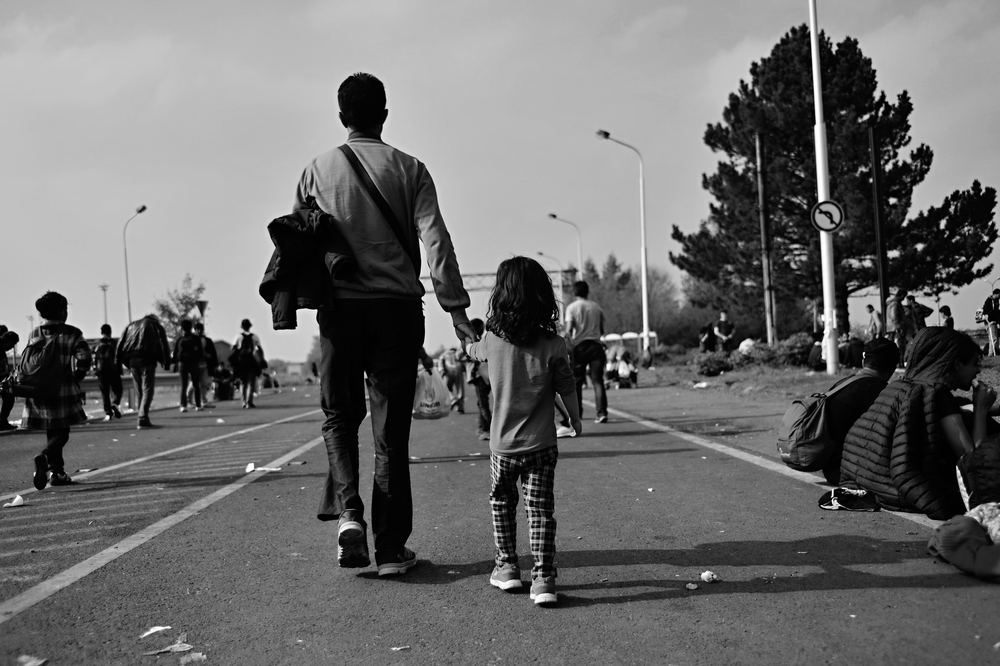Frontline staff in Europe’s collective reception centers face refugees as asylum seekers who have endured perilous journeys and now navigate complex bureaucratic systems. A new study asks what concrete guidance can help staff hold better, more humane mental health conversations.
Using a three‑round expert survey, the authors produced 94 draft guidelines. Ninety‑one reached consensus, including directives to “do no harm,” avoid imposing Western categories, mitigate power imbalances, and, where appropriate, support a resident’s asylum claim.
The paper, published in the International Journal of Migration, Health and Social Care, describes an expert Delphi process to “establish consensus‑based guidance for frontline transcultural mental health conversations in these settings.”
Beyond technique, many recommendations take aim at assumptions that can narrow care.
One guideline says, “Do not cast Western mental health categories as universal,” a direct rebuke to a one‑size‑fits‑all diagnostic lens.
Another instructs workers to “accept that there is a power inequality in your relationship but try to mitigate it.”
Experts also agreed that staff should “identify and acknowledge injustices faced by asylum seekers” and “safeguard human rights and social justice.”
The authors emphasize that mental health needs should be understood “within the broader context in which asylum seekers typically find themselves,” not as isolated individual problems. They advise staff to be “familiar with the basics of the asylum policy and procedure,” and to recognize how “systemic and structural factors influence an individual’s mental health capacity and needs.”
These recommendations, developed through a Delphi review with experts in transcultural psychology, psychiatry, and social work, emerge at a time when research is increasingly showing how immigration policies and standard clinical models can exacerbate rather than alleviate suffering. Against this backdrop, the new transcultural guidelines aim to equip frontline staff with practical tools that prevent retraumatization, avoid reproducing exclusionary practices, and support asylum seekers in ways that prioritize dignity, context, and human rights.
















When you write “human rights” in the context of the 94 policy guidelines, how can one expect the front line of staff, TO BE PRESENT in the allotted time? And if one is able to discern the potential for rights, how will the degree of rights be addressed that can even go to the roots of the migration. One may have rights, though to be able to articulate a problem or the complexities of the problem for staff to receive, hear, and understand is a wall into itself?
Report comment
I’m not sure that this feeble initiative has a great deal of relevance given the utter horror that immigrants are facing now throughout the Western world. A horrific mental pathology has just flowered here in the UK with nation wide protests about immigrants who are living in hotels (paid for by the government only because firstly the government are so slow at assessing asylum applications and don’t permit the asylum seekers to work until the application is complete and secondly housebuilding has not kept pace with demand for many decades leading to a total absence of permanent accommodation hence the hotels rather then council owned accommodation including hostels). I promise you it is like a sudden eruption of a virulent form of fascistic thinking among the largely white working class, stirred up by populist politicians and journalists most notably Nigel Farage who is now leading in the polls and likely to become the next prime minister. So all such initiatives just seem so worthless given the enormous cost of energy, time and resources that go into such things. Our response has to be much more radical and urgent then the academic, legal and social structures permit. If MIA can swallow this bitter pill and move on from the idea of social education, negotiation and reform because regardless of such efforts things continue to deteriorate in people’s wellbeing largely, something that is socially caused and can never be stemmed by your efforts. The whole factual terrain of social and psychological life, including the rapidly, almost exponential rising tide of dysfunction and suffering in the whole of society must be seen clearly, a tsunami that could never be delt with by any form of ‘mental health treatment’. The target of your criticism cannot simply be the mental health field: you have to go further, admitting that there is no obvious solution and the problem is total, social, not merely among so called professionals and patients. You can’t separate the rising tide of what you call mental illness with the rising tide of addiction, fascism, totally delusional conspiracy theorists, the rising homeless and prison populations, the unbelievable rise of dishonesty, corruption and rejection of truth by governments in the whole of the West (including Europe because none of them are being honest about the obvious fall of America and Israel into the hands of fascistic governments), so to bracket off the issue of psychiatry and mental health is itself insane. But you can help to liberate human beings from the lies and delusions if you wanted to and this would always have value. You could also have a forum to discuss the deep problems and possible responses to them in an searching, open and explorative way. Doing things the old way means doing things according to our social conditioning, which is designed to make us impotent – the proof is in the pudding. A much firmer ground then intellectual critique and conformity to social standards of evidence (which exclude our living perception which is of the highest subtlety) – a much firmer ground for effective action then this intellectual critique and conformity is the urgency and seriousness of the problems, the catharsis of discussing them fully, frankly and honestly with serious intent to find an answer, and the clarity of sweeping away all the impotent and useless strategies we are all caught in, not because we have made bad choices but because the only answer today has to be the radical, which implies the new, and the radical, new, creative can only unfold in the openness afforded by admitting we don’t have the answers and the freedom to discuss and explore. The discussion of the problems is inspiration, energy, and contact with the state of consciousness of others concerned with these urgent problems of the world. Out of this milieu something radical and effective can be born, but the virtue and impact of Whitaker’s books and work has been an unrelenting commitment to expose the facts, and this commitment to truth has to be absolutely central to any intelligent, worthwhile and enduring response.
Report comment